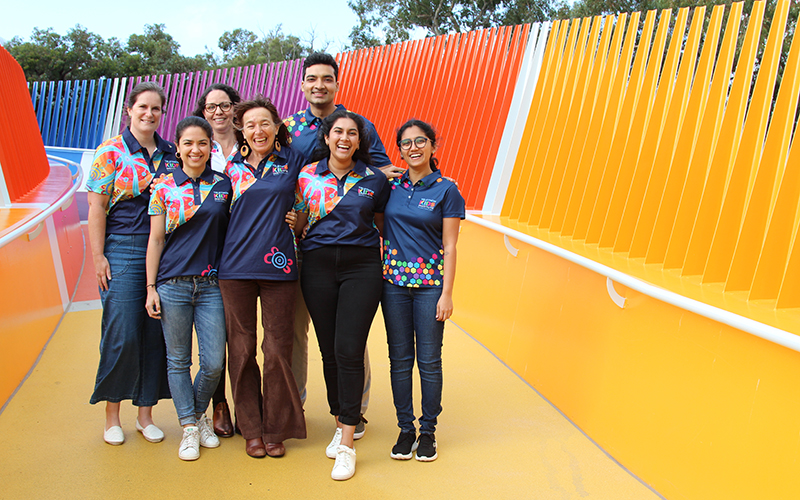Search
Research
Longer duration of exclusive breastfeeding associated with reduced risk of childhood asthma up to age sixBreastfeeding is recommended for all infants irrespective of atopic heredity, although epidemiological studies provide conflicting results in this debate.

News & Events
Mothers learning to FeedsafeA new phone app developed by The Kids Research Institute Australia researcher Dr Roslyn Giglia is helping mothers change the way they approach alcohol and breastfeeding.
News & Events
New research reveals breastfeeding boosts mental healthBABIES SAY "THANK YOU" AS NEW RESEARCH REVEALS BREASTFEEDING BOOSTS MENTAL HEALTH
Research
Gene polymorphisms, breast-feeding, and development of food sensitization in early childhoodThe effect of breast-feeding on the development of allergic disease is uncertain

News & Events
World Breastfeeding Week: Q&AIn celebration of World Breastfeeding Week (1 – 7 August), we sat down with Professor Valerie Verhasselt to ask her some of the top questions about breastfeeding and immunology.
Research
Concentration of food allergens in breastmilk and association with maternal factors– A systematic reviewCommon food allergens have been detected in breast milk with wide inter-individual variations in concentrations. As maternal factors, such as age, smoking, and body mass index have been associated with breast milk composition, we aimed to identify maternal characteristics associated with the concentration of food allergens in breast milk.
Research
Human Milk Microbiome and Microbiome-Related Products: Potential Modulators of Infant GrowthInfant growth trajectory may influence later-life obesity. Human milk provides a wide range of nutritional and bioactive components that are vital for infant growth. Compared to formula-fed infants, breastfed infants are less likely to develop later-onset obesity, highlighting the potential role of bioactive components present in human milk.
Research
Associations of Maternal Milk Feeding With Neurodevelopmental Outcomes at 7 Years of Age in Former Preterm InfantsMaternal milk feeding may have unique long-term neurodevelopmental benefits in very preterm infants. We examine the extent to which maternal milk feeding after very preterm birth is associated with cognitive, academic, and behavioral outcomes at school age.
Research
Infant feeding practices and childhood acute leukemia: Findings from the Childhood Cancer & Leukemia International ConsortiumIncreasing evidence suggests that breastfeeding may protect from childhood acute lymphoblastic leukemia and acute myeloid leukemia. However, most studies have limited their analyses to any breastfeeding, and only a few data have examined exclusive breastfeeding, or other exposures such as formula milk.
Research
Breastfeeding in a COVID-19 worldThe coronavirus disease 2019 (COVID-19) pandemic has changed the birthing and postnatal experience of women. This review highlights how policy changes have affected pregnant and breastfeeding women, the evidence for continued breastfeeding and severe acute respiratory syndrome coronavirus 2 (SARS-CoV-2) vaccines, and how the pandemic's unexpected consequences have affected these women's wellbeing.
